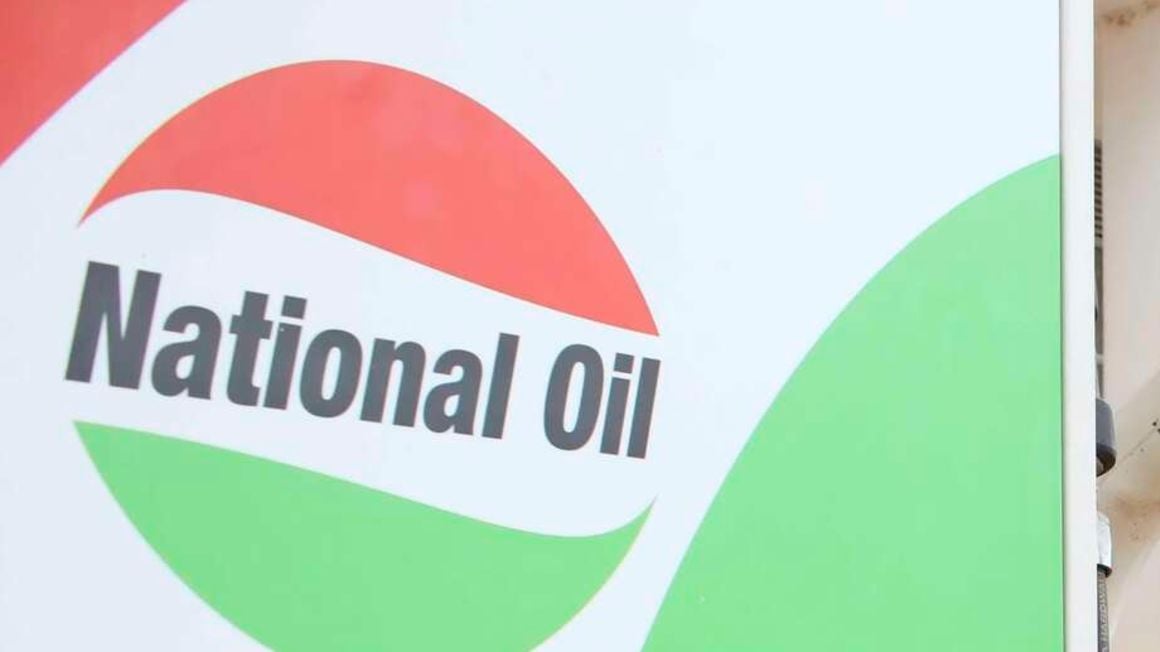
National Oil Petrol station in Nyeri. FILE PHOTO | JOSEPH KANYI | NMG
Gulf oil companies rejected a proposal to use the National Oil Corporation of Kenya to import fuel on credit due to its poor cash position, forcing the State to allow them to
nominate their preferred dealers.Industry sources privy to the talks, which started in September last year disclosed that Saudi Aramco, Emirates National Oil Corporation (Enoc) and the Abu Dhabi National Oil Corporation Global Trading Company (Adnoc) refused to do business with the State-owned entity.
The move highlights the sway the three firms have on the government-to-government deal to import fuel on 180-day credit terms.
Read: Dealers want State deal to import UAE oil on credit blocked
Adnoc picked Gulf Energy to supply diesel and jet fuel while Enoc picked the Kenyan oil marketer to import super petrol. Saudi Aramco picked Oryx and Galana.
The deal is meant to ease monthly demand for dollars and help prop the shilling which has been under pressure in the forex market since last year.
“They said that you (Kenya) cannot impose the counterpart importer on us, we have our preferred dealers whom we have been working with all along and those are the ones we will work with,” said a source who declined to be named.
The previous government had brought in Nock at the beginning of August last year before the talks went mute amid talk that the Gulf oil majors had expressed their discomfort in working with the firm.
Discussions resumed when the Kenya Kwanza Alliance took office with the Energy and Petroleum Cabinet Secretary Davies Chirchir publishing a gazette notice that paved the way for the deal.
The three Gulf oil majors were given a free hand to choose their preferred Kenyan counterparts for the deal.
Local banks issuing letters of credit also flinched at the idea of issuing financial support to the cash-strapped State-owned fuel marketer, ultimately locking it out of the running for the deal.
KCB, NCBA, Absa Bank Kenya, Stanbic Bank and Co-op Bank, alongside the Africa Export-Import Bank (Afreximbank), were picked for issuance of the LCs to the local oil dealers who would clinch the deal with the Gulf suppliers.
An LC is proof of the commitment that a bank issues on behalf of an importer. It offers comfort to the supplier of the goods.
It transfers risk from the buyer to the issuing bank and places the lender under obligation to pay even if the buyer goes bankrupt.
Nock has been struggling to service Sh5.3 billion loans taken from KCB Group and Stanbic. The lenders had in 2020 threatened to seize and auction assets of the oil dealer.
Kenya inked the deal with the Gulf majors early this month, paving the way for the first fuel on credit cargoes by mid-April.
Read: Kenya will import UAE oil on credit to ease dollar woes
Gulf Energy will import between 250,000 tonnes and 350,000 tonnes every month and between 170, 000 tonnes to 200,000 tonnes of diesel in the period.
The company will also import 80, 000 tonnes of jet fuel every month.
Galana Oil and Oryx Energies will ship diesel cargoes of between 160,000 to 180,000 tonnes every month.
The deal will end after nine months after which Kenya may seek a fresh deal if the shilling does not recover from its woes.
→ jmutua@ke.nationmedia.com




No comments :
Post a Comment